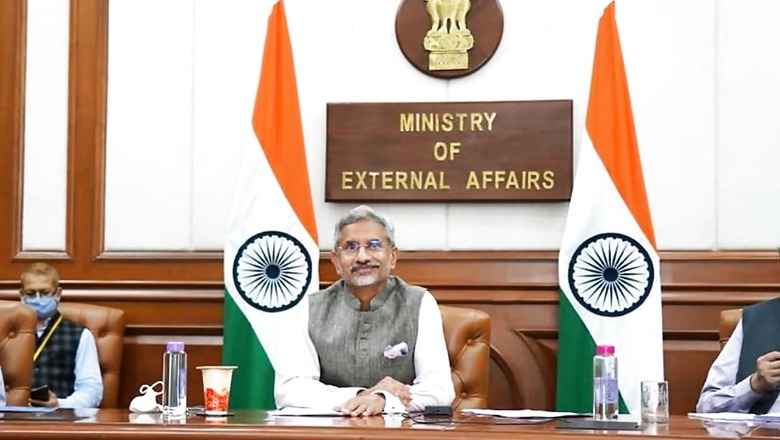
views
External Affairs Minister S Jaishankar is likely to have a stopover in Iran on Tuesday on his way to a four-day visit to Russia, where he is expected to hold a bilateral meeting with his Chinese counterpart Wang Yi, people familiar with the developments said. Jaishankar is visiting Moscow to attend a meeting of foreign ministers of the eight-nation Shanghai Cooperation Organisation (SCO) of which both India and China are members.
He is likely to have a meeting with Iranian Foreign Minister Javad Zarif in Tehran before he leaves for Moscow, they said. Jaishankar's trip to Moscow comes days after Defence Minister Rajnath Singh visited the Russian capital to attend a meeting of SCO defence ministers.
On Friday, Singh held an over two-hour meeting with Chinese Defence Minister Gen Wei Fenghe on the escalating border row between the two countries in eastern Ladakh. In the talks, Singh categorically told Wei that India will not "cede an inch of land" and is determined to protect the integrity and sovereignty of the country at "all cost.
An official statement said that Singh conveyed to his Chinese counterpart that China must strictly respect the Line of Actual Control (LAC) and not make attempts to unilaterally change its status quo. It was the highest level face-to-face contact between the two sides after the border tension erupted in eastern Ladakh in early May.
Both Jaishankar and Wang are expected to hold a bilateral meeting on Thursday, the people familiar with the developments said. The two foreign ministers held a telephonic conversation on June 17 during which both sides agreed that the overall situation would be handled in a responsible manner.
The talks took place two days after the Galwan Valley clashes in which 20 Indian Army personnel were killed. The clashes escalated the tensions manifold. The Chinese side also suffered casualties but it is yet to give out the details. According to an American intelligence report, the number of casualties on the Chinese side was 35.
Tensions flared up again in eastern Ladakh after China unsuccessfully attempted to occupy Indian territory in the southern bank of Pangong lake a week back when the two sides were engaged in diplomatic and military talks to resolve the prolonged border row. India occupied a number of strategic heights on the southern bank of Pangong lake and strengthened its presence in Finger 2 and Finger 3 areas in the region to thwart any Chinese actions. China has strongly objected to India's move. However, India has maintained that the heights are on its side of the LAC.
India has also rushed in additional troops and weapons to the sensitive region following China's transgression attempts.
.



















Comments
0 comment